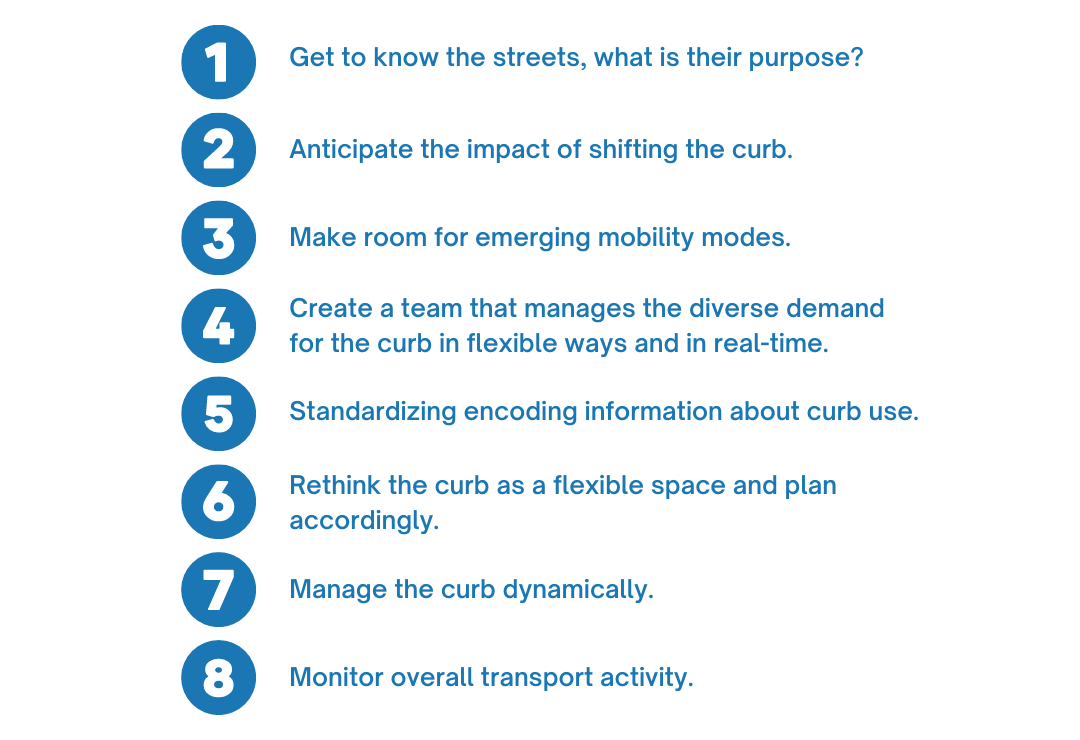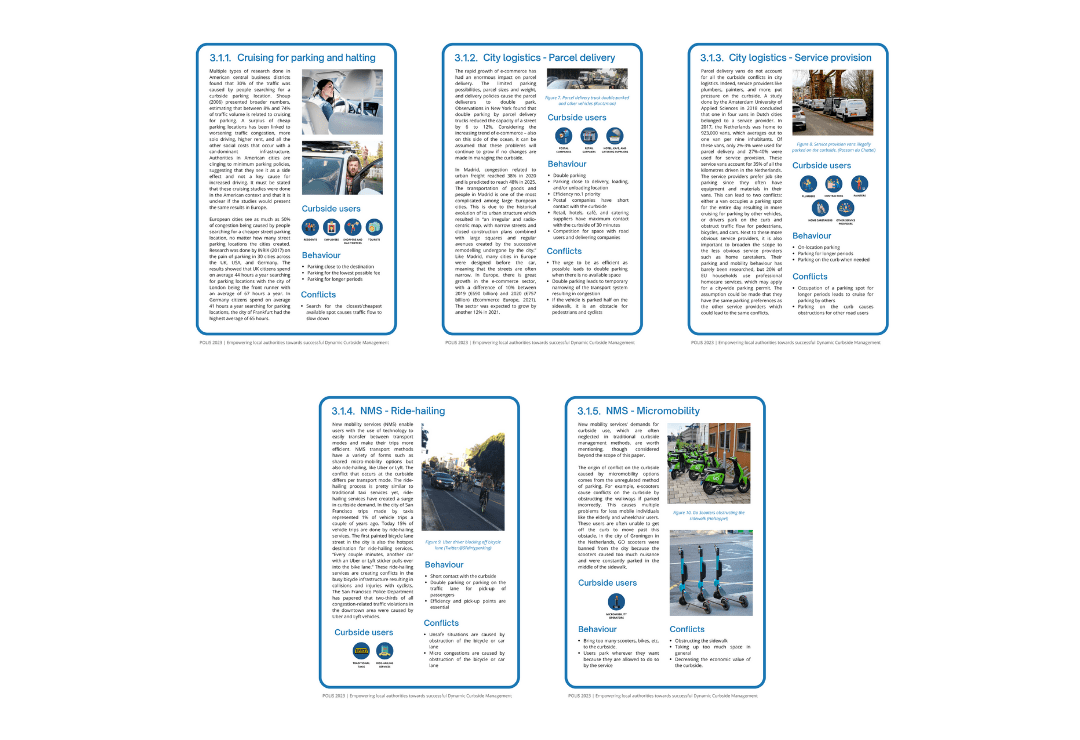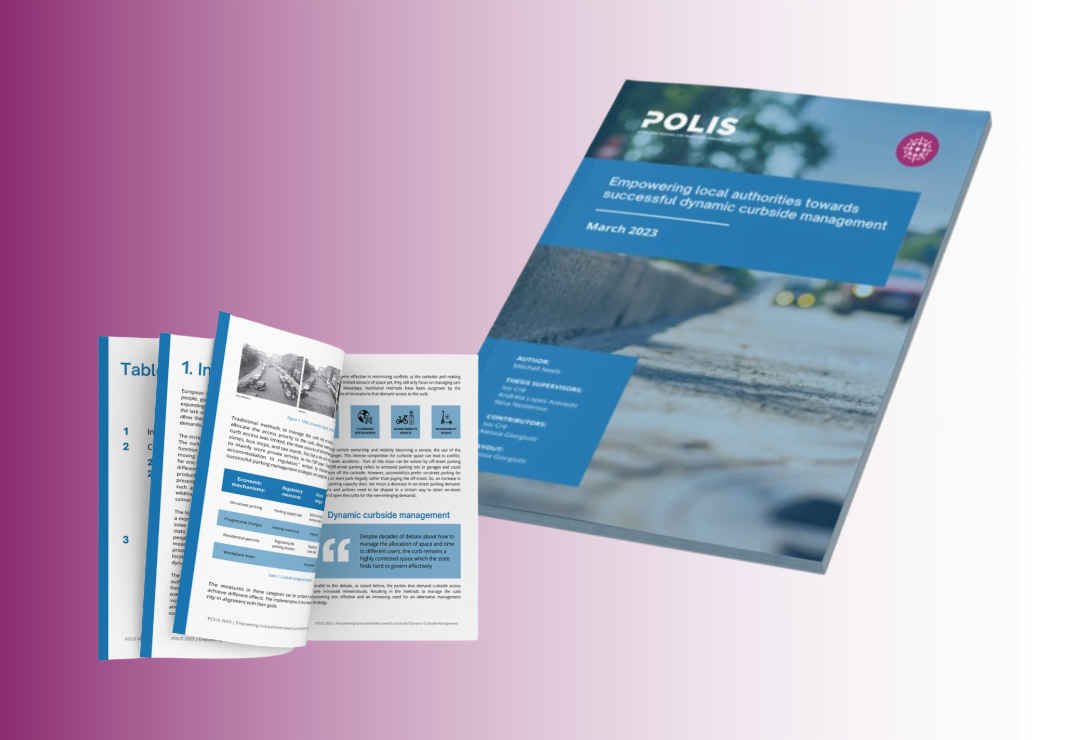POLIS publishes new report on dynamic curbside management
Do not curb your enthusiasm: POLIS has dropped a new report on dynamic curbside management, and you have a good reason to be excited!
On the occasion of AUTONOMY Paris 2023, POLIS is publishing 'Empowering local authorities towards successful dynamic curbside management', a report of the POLIS Parking Working Group.
The report discusses the importance of a dynamic curbside strategy for local authorities and how to successfully implement it. While previous research has focused on the traffic engineering perspective, our report investigates five overlooked pillars that contribute to the successful implementation of dynamic curbside management.

The five pillars of dynamic curbside management implementation (Mitchell Neels) - layout revisited by Alessia Giorgiutti
The report also touches on the work that EIT Urban Mobility and POLIS have done on flexible curbside management. In particular, it focuses on the eight assessment and implementation steps for dynamic curbside:

Demands for mobility, demands for the curb
 European cities and regions are facing increasing demands for the mobility of people, goods, and services. Historically, these mobility demands were satisfied by expanding capacity, but now, cities need to operate within specific boundaries due to the lack of space and climate obligations: this results in a need for innovations that allow them to make more optimal use of space to satisfy the increasing mobility demands.
European cities and regions are facing increasing demands for the mobility of people, goods, and services. Historically, these mobility demands were satisfied by expanding capacity, but now, cities need to operate within specific boundaries due to the lack of space and climate obligations: this results in a need for innovations that allow them to make more optimal use of space to satisfy the increasing mobility demands.
The increasing demand for mobility leads to increasing demand for curbside access. The curb is the place where a function shift happens between the transporting function and the activities of the street, where the people, goods, and services stop moving and generate value for the city. The limited amount of curb space available for one transport system leads to conflicts regarding the allocation of space among different users and uses. Moreover, additional innovative functions are presenting themselves in this limited space due to new mobility services models, such as ride-hailing and e-scooters, and the competition for space spreads like wildfire, as it is not unique to high-traffic volume city centres but also occurs in calmer areas.
The high demand for curbside access and the limited amount of curb space requires a more dynamic use of curb space to satisfy these demands. By all means, shifting away from static vehicle parking offers the opportunity to ‘open up’ space for quick delivery of people and goods or temporary parking.
While the effects of these types of measures and strategies on the curb have been researched (often separately), the process elements for successful implementation have been widely neglected, leaving local authorities in the dark and limiting European implementation of advanced dynamic curbside management solutions. POLIS wants to change that.

The report
'Empowering local authorities towards successful dynamic curbside management' is a report of the POLIS Parking Working Group based on the public thesis 'Empowering local authorities towards successful dynamic curbside management' by Mitchell Neels.
Neels worked as a Curricular Trainee at POLIS under the supervision of Ivo Cré, Director Policy & Projects and Coordinator of the Access and Parking Working Groups, and Andréia Lopes Azevedo, Coordinator of the Active Travel & Health Working Group. Nina Nesterova, Professor of Sustainable Development of Tourism and Transport at Breda University of Applied Sciences, further supervised Neels.
For questions on the report, please contact Ivo Cré at icre@polisnetwork.eu.

